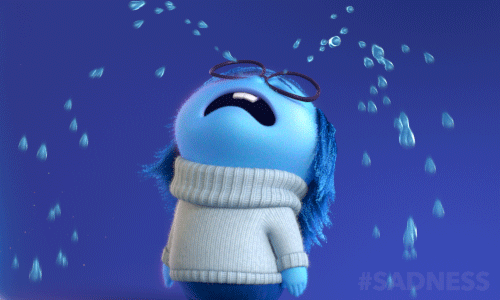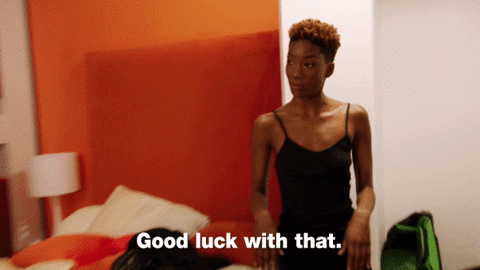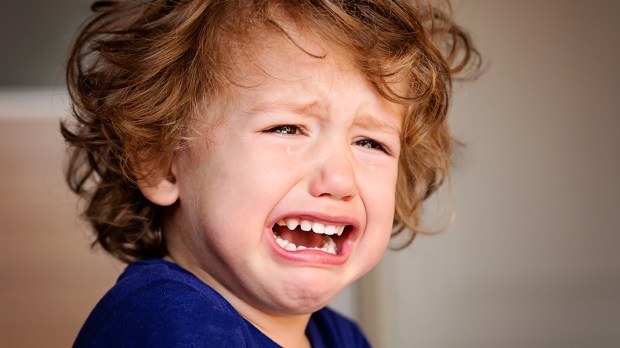Recently, my 2-year-old has begun bursting into tears for no apparent reason. It’s usually in the afternoons when he wakes up from his nap, shortly after the other four kids get home from school. He always seems to be in a fine mood before the crying starts, playing or having a snack or just wandering around the house. And then, with no warning, bam.

Sadness.
At first I chalked it up to flu recovery, but it became increasingly clear that he felt fine. Once I managed to get him to calm down, he was off running and playing and chasing the dog and eating normally. There seemed to be no impetus for the inexplicable tears except the time of day, and I began getting less and less patient. Yesterday I gave up trying to calm him down entirely and just walked away out of sheer frustration.
This morning, I clicked on a link at Evolutionary Parenting about supporting your child during “stress-release crying” (thank you, late-night Facebook trolling) and suddenly I totally got it. The time of day wasn’t a incidental — it was the most chaotic time of day, with everyone running around doing homework and making lunches and bickering and making a lot of noise. It was also the time of day when I’m the least available to the toddler, being occupied with homework and dinner and laundry and a thousand other details. And little Isaac, by far the calmest of my children, the one most appreciative of quiet, the one that loves extended cuddles after nap time, was both overwhelmed and overlooked. He wasn’t crying for no reason — he was responding to stress, and my frustration at the apparent “lack of cause” was making that stress worse.
As soon as some parents hear about stress-release crying, they take it as license to leave their child be during this period of what is supposed to be a supported calming down stage, even though no one who speaks of this type of cry suggests it’s the right thing to do. The idea that the baby is “just releasing stress” seems to signal to these parents that it’s okay to put baby down and walk away. This completely ignores the role of crying-in-arms and the mitigating effect it has on stress. If you are not offering comfort to your child, you are not mitigating the stress and the crying is likely adding to the stress your baby is experiencing … there is a lot of evidence that supporting our children while they cry is essential to their well-being during this time of stress. This is why crying-in-arms is one way to actually respond to your baby who is upset and give her what is needed during this period of crying, even if it doesn’t stop the crying.
Sometimes these “eureka” moments in parenting are just so obvious, and the only reason it takes me so long to get there is that I’m not thinking about my child as an actual human. I’m not trying to be empathetic and figure out what’s going on from the child’s viewpoint, I’m responding to the effect their behavior is having on me.
If I had used a little imagination to see the afternoons through Isaac’s eyes, I would have figured out really quickly that the chaos was too much. I mean, this is the kid who will walk into rooms where people are laughing loudly and say, “shh, quiet!” And to be perfectly honest, I am often overwhelmed by the afternoon chaos as well. I don’t respond by bursting into tears (even though sometimes I want to), but I get short-tempered and snappy and do things like walk away from my crying toddler.
Luckily, being the adult comes with the ability to recognize my shortcomings and fix them. Now that I know that Isaac is just stressed-out by the noise and chaos, I can work to mitigate them and create a more calm environment during the afternoons.

Okay, or I can at least scoop up the crying baby and retreat to the bedroom to hold him while he cries. Maybe I’ll even join him a little bit, because life is stressful and tears have fewer calories than chocolate.

Read more:
How to slow down and get the most out of everything you do

